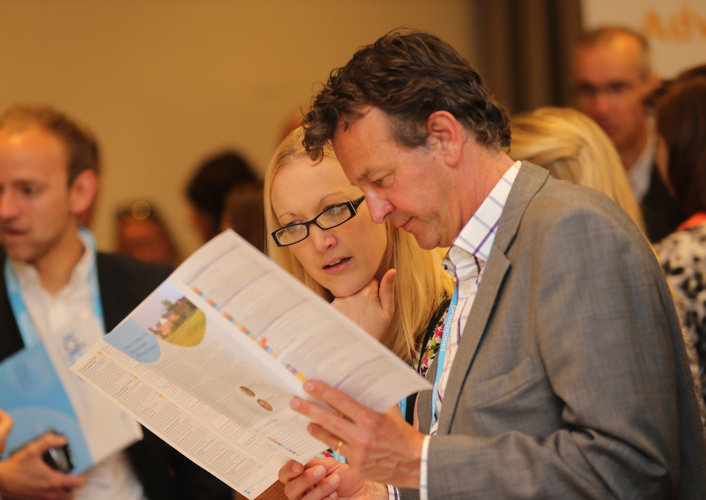What is development?

Professional Development Officer, Susannah Schofield, writes about schools development and the Institute of Development Professionals in Education (IDPE), at the start of the new academic year.
-
£150m was raised by school development offices last year; this amount is forecast to double in the next five years
- The number of development offices has risen five-fold since 2011– more than 400 independent schools now have development offices
- 360 schools are members of the IDPE which represents 1,200 individuals
These are some of the impressive statistics of which we, who work in schools development, are rightly proud. But what is development and why is it so important within the schools sector?
What is development?
IDPE – the Institute of Development Professionals in Education – defines development as:
the process by which schools seek to engage more effectively with their alumni, parents and other stakeholders with the aim of generating financial and other contributions towards a school’s strategic objectives.
Development is not a short term answer to a financial shortfall or to fund new facilities. It is careful relationship-building with all strands of a school’s community, with a long-term aim of securing their support for the school. This can be support for a school’s careers’ programme, speaking opportunities to inspire current pupils, gifts to the school archives, ambassadors for the school, and, yes, philanthropic support.
In short, development professionals offer a range of platforms for alumni, pupils, parents, staff and governors to engage meaningfully with their school.
But this all takes time. From the time of establishing a development office at a school, it can take up to five years to build up a culture of support. The return on investment for schools with a development office is 3.75, i.e. for every £100 invested, there is a return of £375 in philanthropic income. (Research from the National Independent Schools’ Financial Benchmarking Survey 2015, Baines Cutler Solutions Ltd, p50.)
Who are these professional school fundraisers?
Development professionals come in many different guises and job titles: a development team may comprise a development director, an alumni officer and a development assistant. They come from all walks of life – from universities, businesses and charities, as well as from within the schools sector. They are a collaborative community who share ideas, troubleshoot and support each other professionally. Many of them do this under the auspices of IDPE.
What is the Institute of Development Professionals in Education (IDPE)?
IDPE is the UK’s leading membership organisation for schools development staff. We are the market leader in the independent sector – some 89% of schools with a development office are IDPE members. We are delighted to report that all four of the independent schools which have been shortlisted for the 2015 TES Independent School Awards for best fundraising initiative are IDPE members.
We are the first port of call for schools which are just starting out in development and who need a steadying hand as they make their first tentative steps. IDPE offers a range of services. We:
- organise a highly rated programme of workshops and seminars for beginners and experienced practitioners
- run regional meetings and specialist interest forums
- host an online resource centre for our members to share good practice.
Our online Members’ Forum is a focal point for members needing an instant steer. The highlight of our year is the Annual Conference where members come together to hear a range of speakers who are leaders in their field. IDPE also works hard to lobby school leaders in the value of having – and committing to – a development function.
Can we afford to be without schools development?
As long as schools have ambitions to build new facilities and support an even greater number of young people on bursaries, there will be a need for effective development functions to be in place.
Income from professional fundraising in schools first hit £100m in 2011. In the last year, it has grown 15% from £130m to £150m. This speed of increase demonstrates how important fundraising is becoming to the sector. (National Independent Schools’ Financial Benchmarking Survey 2015, Baines Cutler Solutions Ltd, p47).
Fundraising in schools is not just the province of the large well-known boarding schools. There is a significant and growing level of fundraising success in larger day schools, and prep schools’ fundraising income has tripled in recent years.
Whilst development is not a quick fix solution to cure schools of all their financial woes, (according to Baines Cutler, p29, it takes between three and five years for a development office to establish itself properly. Before that time development profits should be welcomed; after that date they should be expected), it is a revenue stream which enhances the quality of education schools provide and, in so doing, makes a school affordable, accessible and sustainable. Ultimately, school leaders need to understand that, in investing in development activities, they are investing in the education of young people.
‘All schools with ambition must have a development office and any school that does not have dedicated fundraising professionals will be lucky to survive in the current competitive environment.’ - Eric Young, Governor, Fettes College
- Planning a Major Gift Campaign, Thursday 1 October, London
- The Essential Development Toolkit (to include a visit to an established school development office), Tuesday 13 October, London
- Creating a Culture of Philanthropy at Your School, Wednesday 4 November, London
- The Annual Fund Toolkit, Thursday 19 November, London
- Social Media for #Friendraising and #Fundraising. Are You Doing Enough? Wednesday 25 November, London
